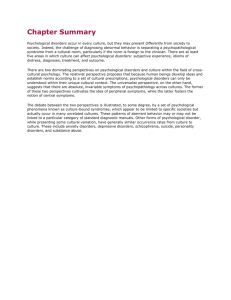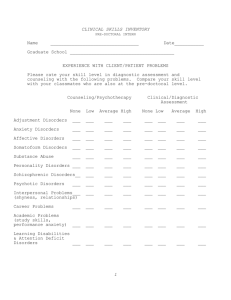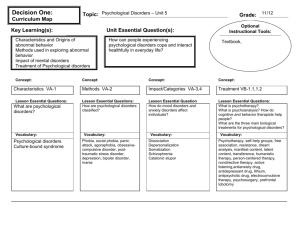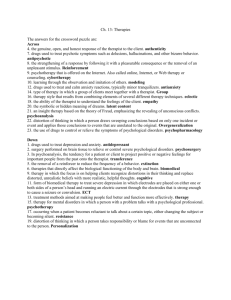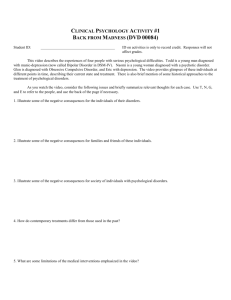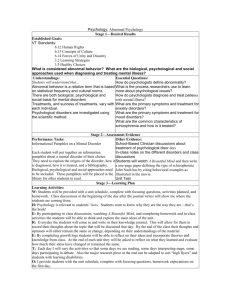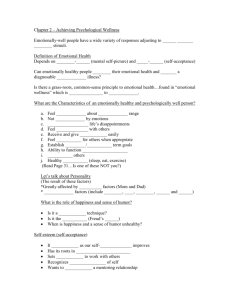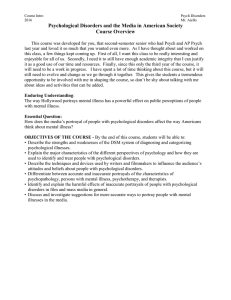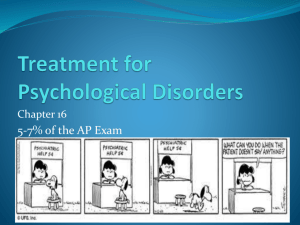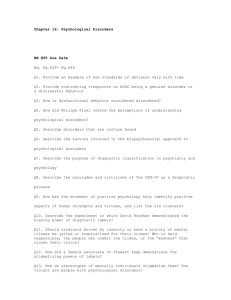Psychology 300 file name is guide4 dot t x t Outline Test 4 Chapters
advertisement
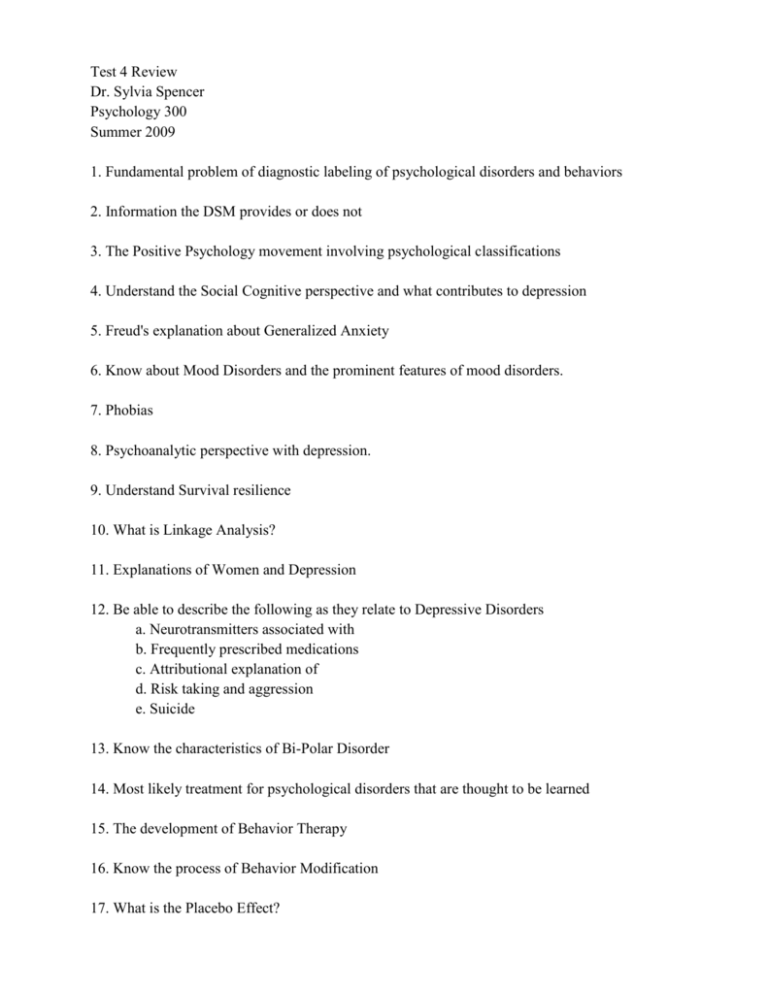
Test 4 Review Dr. Sylvia Spencer Psychology 300 Summer 2009 1. Fundamental problem of diagnostic labeling of psychological disorders and behaviors 2. Information the DSM provides or does not 3. The Positive Psychology movement involving psychological classifications 4. Understand the Social Cognitive perspective and what contributes to depression 5. Freud's explanation about Generalized Anxiety 6. Know about Mood Disorders and the prominent features of mood disorders. 7. Phobias 8. Psychoanalytic perspective with depression. 9. Understand Survival resilience 10. What is Linkage Analysis? 11. Explanations of Women and Depression 12. Be able to describe the following as they relate to Depressive Disorders a. Neurotransmitters associated with b. Frequently prescribed medications c. Attributional explanation of d. Risk taking and aggression e. Suicide 13. Know the characteristics of Bi-Polar Disorder 14. Most likely treatment for psychological disorders that are thought to be learned 15. The development of Behavior Therapy 16. Know the process of Behavior Modification 17. What is the Placebo Effect? 18. What does Psychopharmacology involve? 19. Understand the term Transference in therapy 20. What is Neurogenesis? 21. What would Xanax most likely be prescribed for? 22. What is chlorpromazine and some of its effects? 23. When does the drug Lithium seem to be effective? 24. What is stress inoculation training and what is it focused on 25. Why might some therapists’ perception of the effectiveness of psychotherapy tend to be misleading? 26. Read about the National Institute of Mental Health study which compared three depression treatments: cognitive therapy, interpersonal therapy, and a standard drug therapy. What were the findings? 27. What is the EMDR technique? What is it used for? 28. The personal values of psycho therapists… 29. In the study where potentially delinquent boys were assigned to a five-year treatment program that included professional counseling and family assistance, what was learned and the final outcome? 30. Client expectation involving psychotherapy 31. In the United States managed health care has severely limited the length of psycho therapeutic services that may be covered by insurance. What are some of the results? What could this discourage? 32. Which therapists would most likely try to understand an adult's psychological disorder by exploring that person's childhood experiences? 33. The difference between psychodynamic therapy and traditional psychoanalysis 34. Preventive mental health attempts to reduce the incidence of psychological disorders by doing what?

